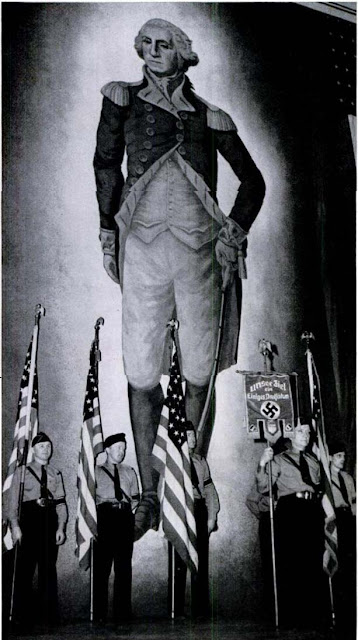by Nomad
 The United States has had its share of fascist groups that have come and gone. One of those was the American Nazi Party, the Bund Party. Here's the story of its 1939 rally and how it led to its collapse.
The United States has had its share of fascist groups that have come and gone. One of those was the American Nazi Party, the Bund Party. Here's the story of its 1939 rally and how it led to its collapse.
A "Pro-American" Rally
On The night of 20 February 1939, something occurred that became an interesting footnote in American history. Today it is mostly a forgotten bit of the history of New York City. And for many, it could be a period they would rather not recall.
That evening, Madison Square Garden was the venue for the American- German Bund party Washington's Day celebration, hosted by American-German Bund party.
You may not be familiar with the Bund party, it was better known as the American Nazi party.
Advertised as a "Pro-American Rally" it was attended by somewhere between 17,000 and 22,000. It was one of the largest gatherings of American Nazis of its time.
From the photographs of the event, there were the usual Nazi rally fixtures, flags, the swastikas, and uniforms. In order to establish its brand as true blue American, a forty-foot portrait of George Washington graced the stage. That was more than just window dressing. The organization had declared that Washington was "the first Fascist" who did not believe democracy would work.
The meeting opened with a salute to the flag and the playing of the "Star-Spangled Banner." (It was to end with the Nazi anthem, however.)


